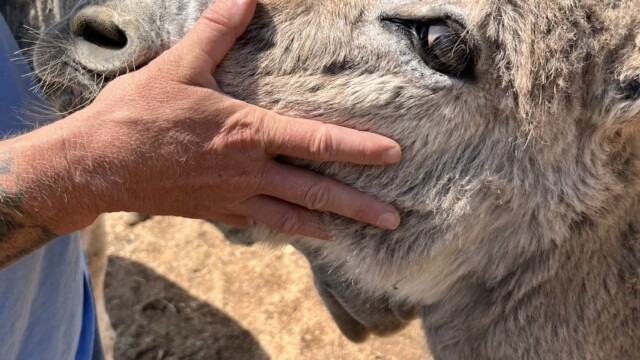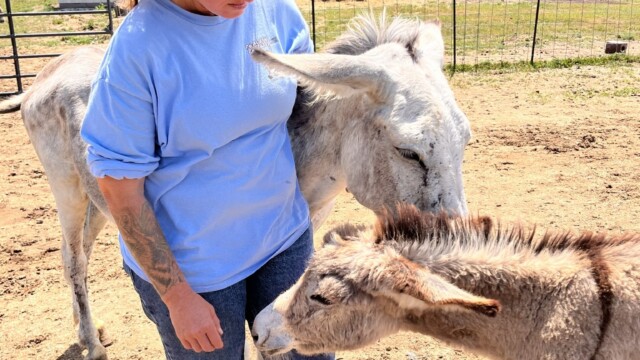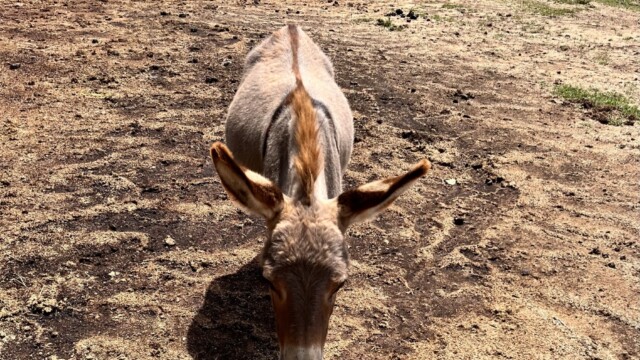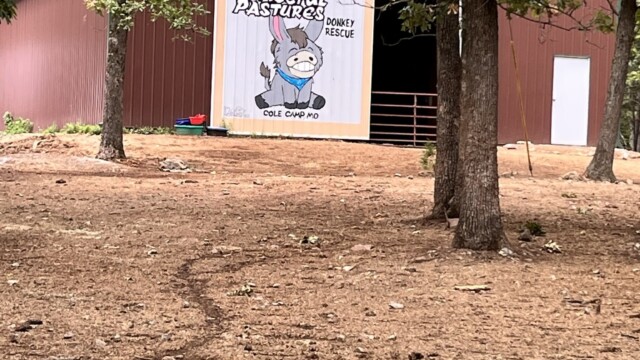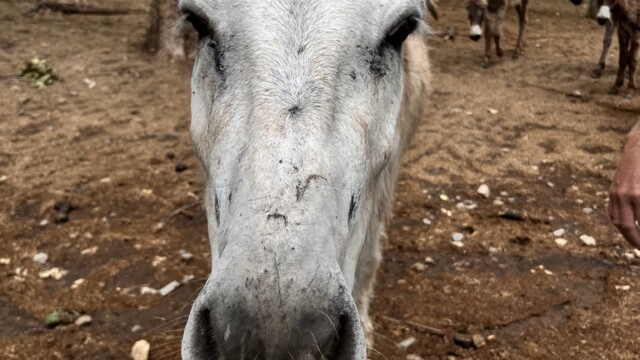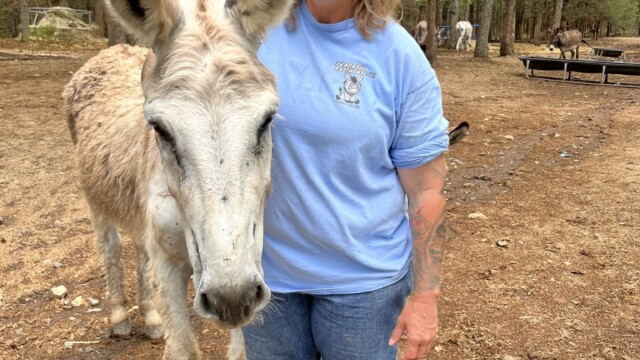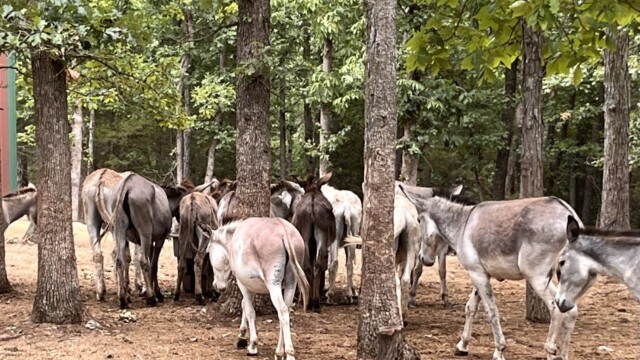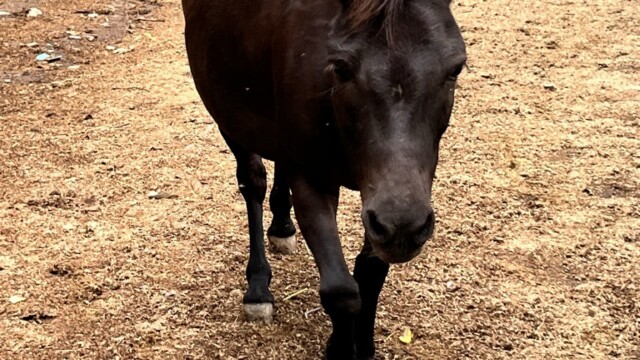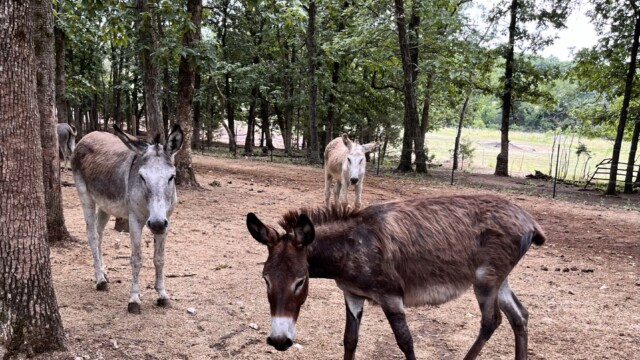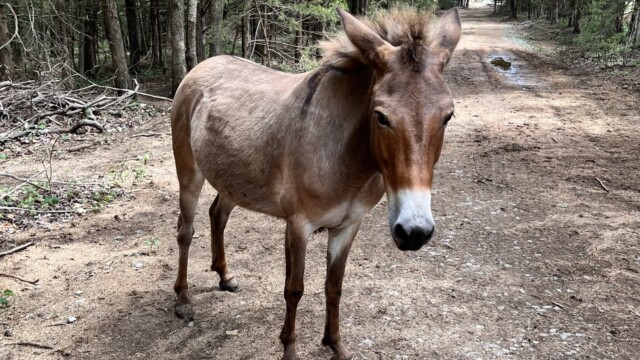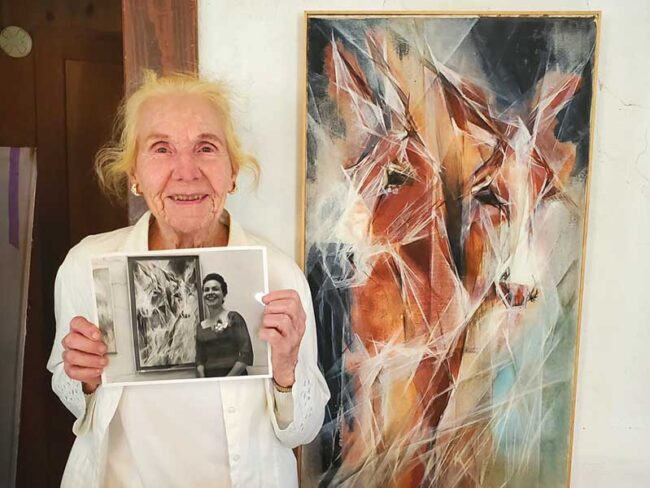When Dr. Beth Hakala isn’t busy tending to patients in the ER, she is at her Peaceful Pastures farm, caring for the 300 donkeys, mules, and horses she has rescued. Find out what sparked Beth’s passion for donkeys and learn how you can help.
By Sandy Selby
All photos courtesy of Sandy Selby
A dozen donkeys vie for Dr. Beth Hakala’s attention in one of several fenced pastures at Peaceful Pastures Donkey Rescue south of Cole Camp. More than 300 equines—mostly donkeys, but also horses and mules—have found a second chance at life on this picturesque farm. Abused and neglected animals, many destined for slaughter, regain their health here under Beth’s loving care. The emergency room physician at Lafayette Regional Medical Center in Lexington knows what it takes to make people well, but what led her to become a guardian angel for equines? It began when she saw a forlorn little donkey she couldn’t resist.
Q | How did you get started as a donkey rescuer?
A | My daughter decided one day she wanted a donkey, and so I went to an auction to get her one. In that auction, animals were being beaten. Auctioneers were standing on the donkeys, laughing, and kicking them. I was appalled. There was one donkey, in particular, that was so sad. So, I brought her home. I started researching and found out about the awful things that can happen in some auctions and kill pens.
That was 2021. I started with that one donkey, Waffles, and then it just grew from there. I knew that we needed to become a rescue when we got 22 in at one time. Now I have 300.
Q | What condition are the animals in when they arrive?
A | Most often they’re either super skinny or their feet are just awful. And those are the ones that we usually go after. They all come sick. I keep them in quarantine for a month and start helping them put on weight. I gradually increase their feed because, like with humans, if they’re starved, you can’t just feed them a bunch of food. Once I get them to a better body weight, then I can start working with them—training on a halter and being friendly. It’ll take me two or three months just to get them trained. We have farrier days three to five times a month. Some donkeys arrive and their feet have never been trimmed; it takes about a year to remodel a foot.
Q | Do you adopt out the animals once you get them healthy?
A | I do adopt them out, but they come in a lot faster than they go out. If someone can’t take on a donkey, but they believe in what we’re doing, we have a virtual adoption option, too. They get pictures of their donkey and a T-shirt and different things depending on the donation level. And there are some here that are residents. I don’t adopt them out because they’re good for tours, and I can educate people on what happens with the donkeys.
Q | Besides adoptions, how do you support the operation?
A | I do an Airbnb experience tour. I do a three-hour tour and tell them all about the rescue. And we have a haunted hayride in October. That’s how I partially fund the hay because hay is a problem right now. I’ve actually got a hay broker trying to get hay cheaper by the ton than what I’ve been paying, but hay prices are outrageous right now because of the drought.
Q | Do the donkeys help ease the stress of your work in the ER?
A | It is very therapeutic to be around a donkey. Having horses, dogs, and now donkeys in my lifetime, I’ve found the donkeys are way better pets than other animals. I’ve got nurses from different hospitals that come for therapy days. They’ll stand and brush and say hardly any words all day long. They just get away from it all, and it’s nice.
Arrange a visit or virtually adopt a donkey at www.PeacefulPasturesRescue.org.
Horses Who Heal • Missouri Life Magazine
5 Fiber Farms Across Missouri You Can Visit • Missouri Life Magazine
Article originally published in the September 2023 issue of Missouri Life.
Related Posts
Debut of Meet Me in St. Louis
November 22, 1944 was the world debut of Meet Me in St. Louis. One of the biggest feature films to showcase St. Louis was released by Metro-Goldwym-Mayer. The movie featured Judy Garland and was set in St. Louis in the year before the 1904 World’s Fair. The film was nominated for four Oscars and won numerous major theatrical awards.
Meet Clara Straight
Wide smiles and watercolors

